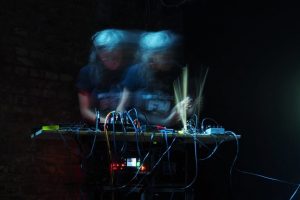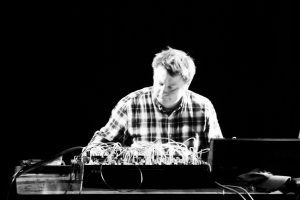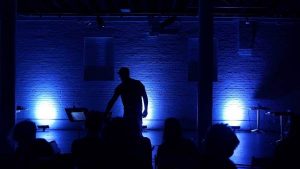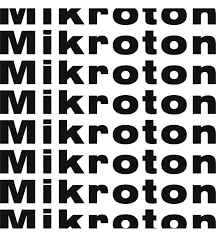Friday, June 7, 2019
Filiason
 Mikroton is a Russian label founded in 2009, based in Moscow. His artistic line revolves around improvised, electronic and experimental music in a broad sense, with a catalog that will delight fans of the genre. Apo33 and Instants Chairs Activate the process of searching for product names on the label, oriented towards the practice of EAI Improvised Electro-Acoustics. Artists who have moved from computing, modular synths and “everyday electronics” into their music, into an instrument and a form of score that gives direction to the ensemble.
Mikroton is a Russian label founded in 2009, based in Moscow. His artistic line revolves around improvised, electronic and experimental music in a broad sense, with a catalog that will delight fans of the genre. Apo33 and Instants Chairs Activate the process of searching for product names on the label, oriented towards the practice of EAI Improvised Electro-Acoustics. Artists who have moved from computing, modular synths and “everyday electronics” into their music, into an instrument and a form of score that gives direction to the ensemble.
For this event, Kurt Liedwart, head of the Mikroton label, has joined two confirmed musicians from the European experimental scene: Billy Roisz and Julien Ottavi, both crossing sound art, electronic instruments and composition. Eryck Abecassis proposes a solo, uses modular synthesis, a new solo with multiple layers and untimely acceleration.
- Billy Roisz
Since late 1990s, Billy Roisz dealt intensively with video and sound. Her work focuses on the links and gaps between visual and auditive perception. Roisz questions the interaction between sound and image, the interchangeability or unity of the electromagnetic signal in the generating machines which creates image or sound.
The realisation of her experiments takes place in live performances, single screen works and audio-visual installations, solo or in collaboration with musicians of experimental music and noise as well as composed new and old music, dance and theatre.

- Kurt Liedwart
Kurt Liedwart is a sound artist, graphic designer and curator based in Russia. He has developed his own art and sound that combines accuracy of technology and imperfection of life, the use of the raw and processed. His work and life are less a study in contradictions of binary oppositions than a portrait of the multidisciplinary artist of the current century. Working across an eclectic array of aesthetic investigations, Liedwart’s work is guided by his interests in perception, context, movement, and memory. His diverse body of works — performances, sound diffusions, recordings, graphic design — helps to heighten the audience’s awareness of the present moment and enhance their sense of what exists on the edge of perception. His work draws on a wide range of sources, including raw and altered field recordings, analog and digital sound synthesis, to produce slowly evolving sonic fields. Through careful consideration, his works not only address hearing, but simultaneously expose the methodologies of listening itself, allowing audiences to explore the politics of awareness.

- Julien Ottavi
A mediactivist, artist-researcher, composer / musician, poet and tongues destroyer, experimental film maker and anarchitect, founder and member of Apo33, Julien Ottavi is involved in research and creative work, combining sound art, real-time video, new technologies and body performances. Since 1997, he develops a composition work using voice and its transformation through computer. Active developer of audio/visual programs with Puredata, he has also developed since many years DIY electronics (radio transmitters, oscillators, mixers, amplifiers, video transmitters…etc) in the perspective of knowledge sharing on technological development. Main developer for the Gnu/Linux operating system APODIO for digital art and A/V & streaming diffusion. His practices is not limited to the art spheres but crosses different fields from technological development to philosophy / theoretical research, biomimetic analysis & experimentation. For many years he reflects on the relations between experimental practices and collective practices within the creation of autonomous collective groups, putting in question the authorship strategy of the “art ideology”.

- The rnst (Canada)
– Pierre-yves martel viola da gamba
– Éric normand electric bass, electronics
Les Ateliers de Bitche, 3 rue de bitche, doors at 8:30.
- On the spot : 7€
- Web : 5€ : https://www.helloasso.com/associations/apo-33/evenements/filiason-5-mikroton
- Adhérents : 4€

